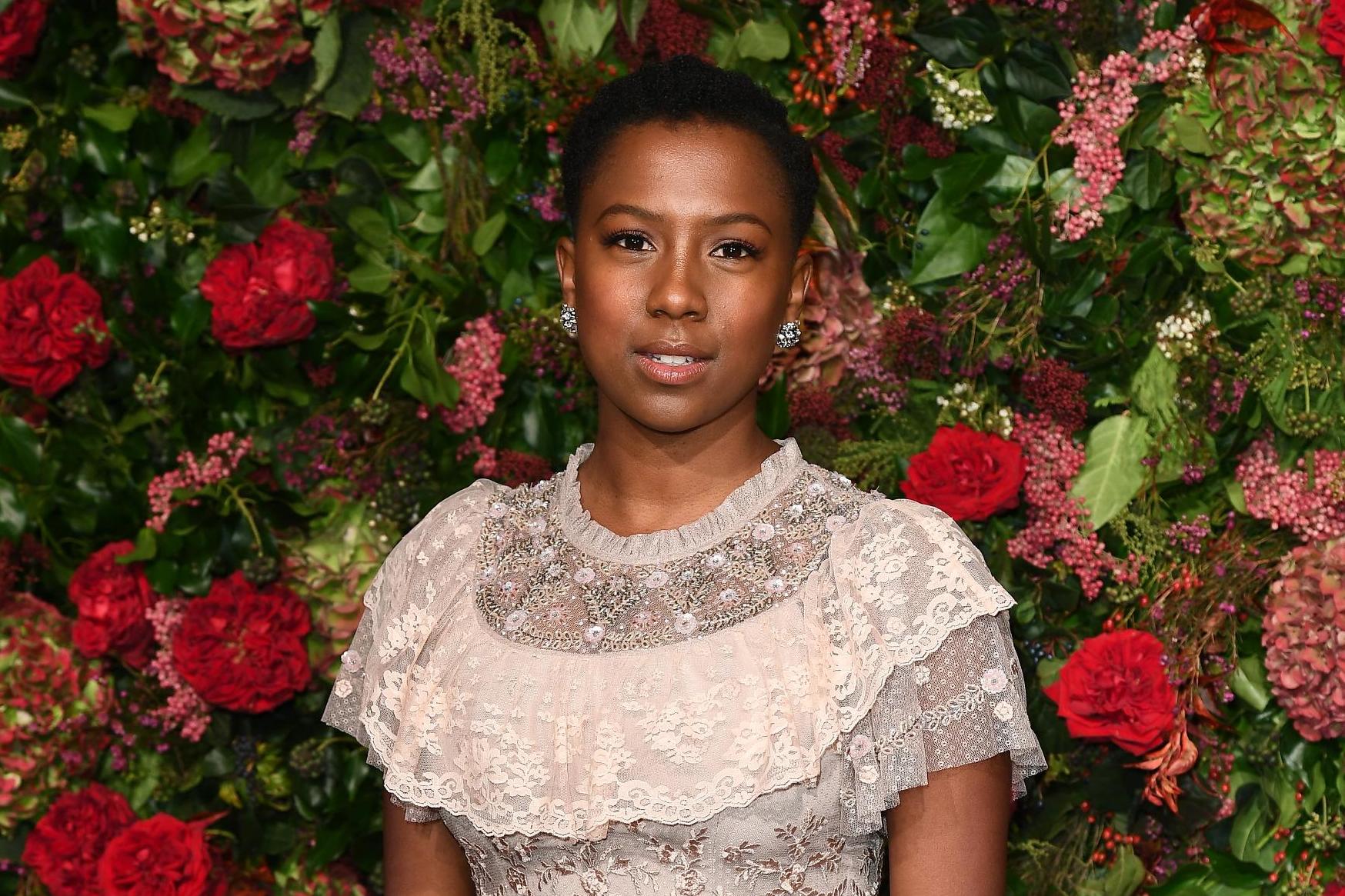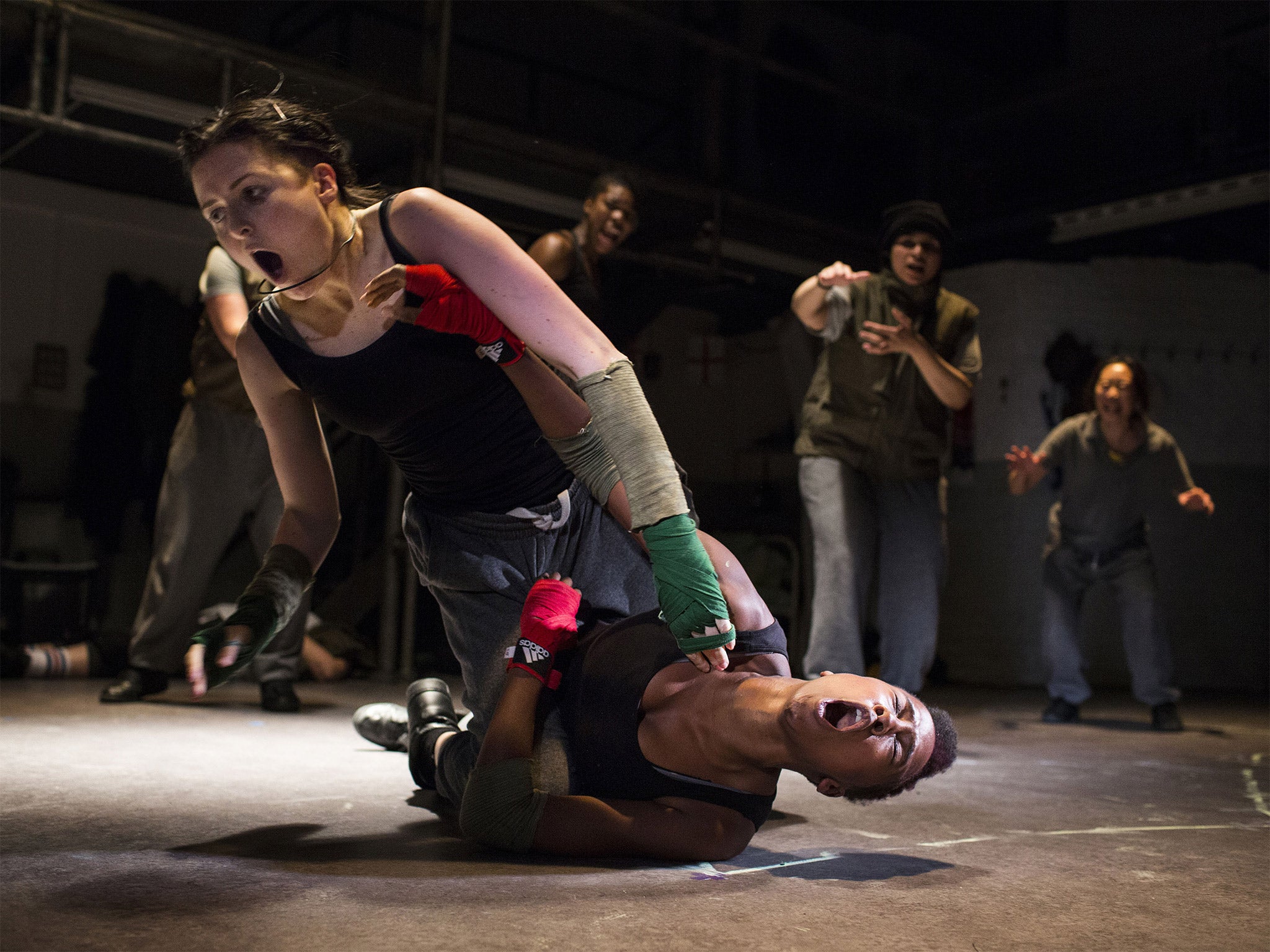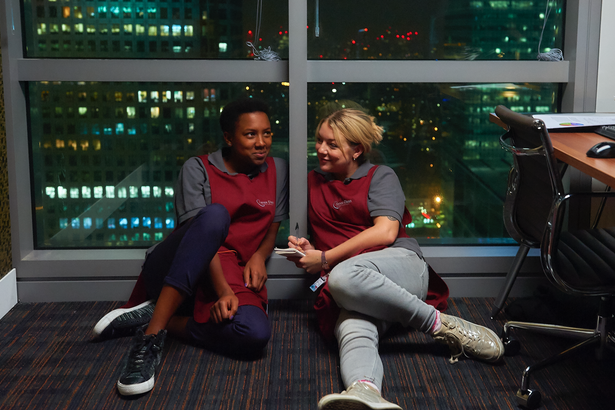Cleaning Up starts on Wednesday 9 January on ITV at 9pm
Jade Anouka interview: ‘Lead roles for black actors here are really rare’
The rising star talks to Chris Harvey about not wanting to uproot to the States, her new ITV drama ‘Cleaning Up’, ‘Doctor Who’, and whether she or Idris Elba should play Bond

Your support helps us to tell the story
From reproductive rights to climate change to Big Tech, The Independent is on the ground when the story is developing. Whether it's investigating the financials of Elon Musk's pro-Trump PAC or producing our latest documentary, 'The A Word', which shines a light on the American women fighting for reproductive rights, we know how important it is to parse out the facts from the messaging.
At such a critical moment in US history, we need reporters on the ground. Your donation allows us to keep sending journalists to speak to both sides of the story.
The Independent is trusted by Americans across the entire political spectrum. And unlike many other quality news outlets, we choose not to lock Americans out of our reporting and analysis with paywalls. We believe quality journalism should be available to everyone, paid for by those who can afford it.
Your support makes all the difference.Jade Anouka is better known to theatre fans than television viewers, but that may be about to change. The 27-year-old has been popping up in smaller roles for years, most notably in Trauma and Chewing Gum, but in ITV’s new drama Cleaning Up, she stars opposite Sheridan Smith as a cleaner who takes advantage of the city offices that she scrubs to try her hand at insider trading. It’s her first big TV role, but the actor who has given commanding stage performances as Margaret of Anjou and Mark Antony is more than ready.
She performed the latter in Phyllida Lloyd’s all-female Shakespeare trilogy at the Donmar Warehouse, which has been described as one of the most important theatrical productions of the 21st century. She played Ariel in The Tempest, Hotspur in Henry IV and the great Roman general in Julius Caesar. I wonder if she could possibly have imagined herself performing Antony’s immortal lines when she was spear-carrying at the RSC after leaving drama school? “Hah, absolutely not,” she says. “You would stand at the back holding the keys to something, looking at the lead delivering these amazing speeches, and thinking, God, I wonder what that feels like? The power of the words is palpable.”
She has thoughts on “gender-blind” casting of “historical plays that have been done and done and done”. “We have to find a reason why we’re still doing them – to keep doing it as it was done before, then we’re not learning anything new. If we’re going to keep doing Shakespeare, there’s so much more in there that we haven’t found out because we haven’t been as interesting with our casting as we could be.” Hearing those words through different mouths, she says, can reveal things we didn’t know were there.

The artistic director of the Old Vic, Matthew Warchus, has described Anouka as “a phenomenon… with a limitless future ahead of her”. How hard is it to translate that kind of recommendation into parts? “Well, Matthew clearly needs to give me a role, doesn’t he?”, she says, laughing. “It’s really nice to hear that, but you can only be as good as the parts you get. It’s when a performance and a role lines up that there’s brilliance.”
She grew up in Bexleyheath, and was once a teenage athlete, at 800m, 1500m and high jump. She was a fan of Britain’s Olympic heptathlon champion Denise Lewis (“I thought she looked like my mum”), ran for Kent, but turned away from athletics when she went to sixth form in Lewisham and realised she would have to compete for her arch rivals against her former friends.
Her mother Beverly was a maths teacher, her father a financial adviser, and neither her brother nor sister have gone into the arts. “I used to rope in my little cousins to do performances of my grandmother’s songs. I fell in love with performing way before I realised you could do it as a job.” When she applied to the National Youth Theatre, and met people her age who wanted to act as a career, she realised it was possible. She was there with Kit Harington (she performed with him in Doctor Faustus in the West End a couple of years ago). Matt Smith was older than her but in a production there at the time, too.
She went to drama school in Guildford, where she experienced overt racism for the first time. “The first time I found it really extreme was definitely at drama school. At school, I was one of the few black pupils, but people didn’t tend to say anything to my face. When I worked in the theatre there it was really overt.” She’s talked in the past about how she was part of the staff in the theatre bar, and noticed how some customers would rather stand in a queue than be served by her.
After her stint at the RSC, she built her career gradually, supporting herself with casual jobs to avoid moving back in with her parents. She picked up bit parts in film and television and packed in loads of stage work. She got rave reviews last year playing Margaret of Anjou on stage in Jeanie O’Hare’s Queen Margaret – “an amalgamation of the real Margaret and Shakespeare’s Margaret” – who is a dominant, ruthless and sometimes cruel character in Henry VI parts one, two and three, as well as Richard III. She’s terrifying, isn’t she? Shakespeare’s Margaret may have been in tune with the opinion of the times, Anouka says, “but it’s interesting when you look at her with modern eyes – is she terrifying or is she just not doing what people expect a woman to do? She’s not doing anything worse than the men are doing? Everything is terrifying in that time. She has been singled out as a “she-wolf”, but she just fitted in to that world.”

Anouka playing Margaret of Anjou fits into the conversation about the “colourblind casting” of historical figures, both real and fictional, like David Oyelowo’s Javert in BBC’s Les Miserables. Does she have strong opinions about it? “That term makes me feel icky. I don’t think people are going to not see colour. I don’t think you should go and see Queen Margaret and pretend that I’m not black, that’s weird. It shouldn’t be that it’s blind, it should be that it doesn’t matter. The amount of imagination you have to use when you’re in the theatre anyway, the things you are having to make up in your head to accept [the drama] as true. We have snow fall out of the sky that isn’t real snow, but you don’t think about that.”

Watch Apple TV+ free for 7 days
New subscribers only. £8.99/mo. after free trial. Plan auto-renews until cancelled

Watch Apple TV+ free for 7 days
New subscribers only. £8.99/mo. after free trial. Plan auto-renews until cancelled
Does it partly show up that we’re not seeing enough lead parts written for people of colour? We talk about Idris Elba’s Luther, which proved once and for all that a mainstream drama with a black actor in the lead role could have huge ratings, yet hasn’t been followed by lots of other shows. “There’s definitely more to be done. We are seeing more black people in TV shows and films, in parts that we maybe weren’t seeing before, but actual leads? Still really rare.”
She’s just worked with Elba on his upcoming Netflix comedy Turn-Up Charlie, in which he plays a DJ turned nanny – or “manny” – to his friend’s problem daughter. Anouka plays a DJ, too (“I’ve got great outfits”). Should Idris play Bond? “I adore him, not that I want to let his head get any bigger,” she laughs. “He’s brilliant and it needs a brilliant actor, and of course he could do a wonderful job. He’d be great, but there’s a load of actors out there who’d be great of all different races.
“I think it would be cool,” she adds, “or maybe we’ll have another younger black actor – don’t tell him I said that.”

I’d read that she fancied playing Bond herself... “Well I like action films and stuff like that,” she says. “I love, particularly, Casino Royale. It’s so smooth, I was, like, what if there’s a version that has a woman doing all those things, the kind of character that James Bond is? When it first came out, we never thought women would do that, but surely we’re open to it now? Surely you can have a woman assassin, who’s very smooth and great in bed. We can imagine that now… and I’ll put my name forward.”
She notes that “when Daniel Craig first did it, everyone was like, oh my gosh, he’s got blond hair. So maybe there can be another change… start with the hair.”
Anouka had a small part in Doctor Who when Matt Smith was the Doctor – what does she make of casting Jodie Whittaker as the Time Lord? “In Doctor Who, there’s no argument. The Doctor is an alien with two hearts, who regenerates into different bodies. There’s no reason why it should always be a man. It should be a very different Doctor every time.” So, Whittaker or Matt Smith? “I mean, come on, Jodie’s the Doctor, I’ve got to go with her.”
She loves superheroes, too, and last year organised a free showing of Black Panther at a south London cinema. “Black people were never the heroes in superheroes films, they were the villains or supporting characters,” she says. “Black Panther was something that when I was younger I would have been obsessed with. The women in it are soldiers, they’re strong, Black Panther’s sister is a scientist, I just felt people need to see this, particularly young black people.” Not just young black people, though, she stresses. “Whatever race you are, if you don’t see people in a certain light, you’re going to see the world that way, it’s important.”
Anouka writes and performs her own poetry – “sometimes as an actor, you’re not necessarily in control,” she says, but writing gives her a way of saying what she wants to say. She’s just written a poetry-based theatre piece, which she hopes will be staged, although she says, writing a play may be further down the line.
She has experienced the frustration of there not being enough parts that she can audition for: “I do feel that I hardly ever go up for the lead, or even anything as big as the number two role [like the one she plays on Cleaning Up], it’s more often a few scenes here and there. If you compare that to the States, it feels like I could fit into more lead stuff there. But I’m such a Londoner, I’m desperate to stay here and work.
“I would love there to be more interesting and challenging roles that I can go up for. It’s not even getting them, just having auditions for them. People say all the time [that I should go out to the States], but I don’t want to. I’d go for a job, but I wouldn’t just uproot and go there to try to see if I can make it. I’d rather try to make it here.”
Join our commenting forum
Join thought-provoking conversations, follow other Independent readers and see their replies
Comments